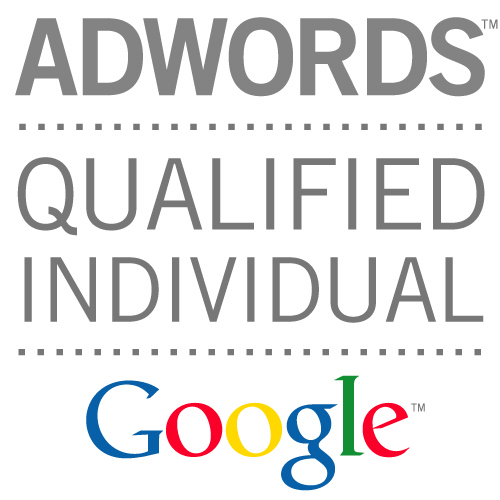When I walked in to my first PPC agency I saw a sea of employees at their desks, and my initial thought was; this looks like a modern day factory.

Image Credit: Anticap
They had turned the potentially organic, healthy process of paid search into a factory system. At the front end you had the sales team. Who didn’t fully understand the tools and techniques they were promoting, nor did they need to. They were there to dazzle, amaze and over promise to clients.
Then after that you had team managers. Their responsibility was to oversee their little band of account managers. Crack the whip when necessary, provide support when necessary, but at all costs keep the show on the road.
Then, lowest of the low, you had the account managers. The grunt workers of the factory. The people in the organisation who actually understand what PPC involves. But, generally speaking, don’t do sales, otherwise they probably wouldn’t be there.
Most paid search agencies work on this basis.
They take a rate from the client based upon client spend or account complexity. But they then pay their account managers a flat salary.
Then they load their account managers up with as many clients as possible. An arbitrary target, I seem to remember, was 4x salary.
That means; they expected account managers to be managing accounts that invoiced a total of 4x their monthly salary.
That’s an excess of client work for one person. It’s not in the best interest of the account manager, and neither is it in the best interests of the client.
Why It Still Works For Clients, But Isn’t Optimal
Two main reasons (but lots of other little ones):
– Firstly, paid search is really… really effective! Especially vs. not doing it. So it wouldn’t be obvious to a client that the arrangement is sub optimal.
– Secondly, these factories are good training grounds for learning quickly about paid search. Should the worker be unsure of how to do something, there’s usually a fellow worker who knows the answer. This effectively means all account managers reach a certain level of competence.
The Problem
TIME.
Yes, time.
The more plates (accounts) an account manager is spinning, the less time they have to pour over each one.
When loaded up to the gills, the clients business become just another ‘number’ the account manager has to satisfy.
This can lead to sub-optimal account performance. Even if the account’s ROI is still positive.

Image Credit: Sullivan Story
A Better Business Model
Instead of treating account managers as factory workers, instead treat them more as equals.
One way to do this is to change the financial model. Offer client managers a % of the client fee.
Lets look at the numbers quickly and see how this works out.
To model this we need to start with some hypothetical variables.
If its ideal for a client manager on the standard business model to invoice 4x salary, lets take a more conservative estimate of 3x.
Secondly lets pretend they run 6 accounts each with a fee of 1500 (add your own currency symbol).
That’s an annual client fee of 108,000.
With the standard business model the client manager earns 36,000.
Supposing using the other business model they take home 40% of client spend, that would bring their annual income to 43,200. A 20% increase on the standard model.
But honestly, to me, 40% seems too low. Lets try 50%. This equals 54,000.
That becomes a 50% increase on annual income. That’s huge.
Ok great, so we’ve theoretically increased the account managers income, is that it?
No.
What we’ve now done is change the business model to a performance based model that’s two way. It’s transparent.
With the old business model, it is in theory a performance based model.
In theory agencies will pay account managers more if they perform better. But who defines better? The agency. And it’s not in the agencies interest to make the rules clear. As the more they pay, the less they profit. It’s a one sided game that the client manager can’t necessarily measure or track.
What you do by changing the business model to a % of client spend, is make the performance trackable by the account manager also. Their income is now directly tied to the clients they manage.
Their buy in makes them more likely to invest in their clients’ account.
Are Companies Already Doing This?
Not many!
Transparency is rare in this field.
One agency doing this, and I applaud them for it, is Search Scientists.
In a recent job posting they advertised that client managers would receive 40% of the clients fee.

Agency vs. Freelance?
This is where the numbers get interesting.
For a freelancer to earn the equivalent to the ‘optimal’ agency wage, they would only need to manage 3 of the 6 accounts in the hypothetical scenario earlier.
Half the work load.
That’s a lot of extra time to put into the accounts. 50% more in fact.
So why doesn’t everyone work freelance?
It’s a good question.
One simple answer is that not every knows how to win clients.
Another is that people don’t necessarily want to work ‘alone’.
In both those respects agencies off a number of benefits:
– They provide clients to the account manager
– They foster an environment for socialising
– They increase learning through training and osmosis
Conclusion
So what have we established?
The standard business model for ppc agencies is stacked in favour of the business owners.
It’s not in the best interests of the client or the account managers.
But there is a better model for both parties – the one we just discussed above.
Business owners can’t potentially make as much profit this way, but they do stand to make their clients happier.
That seems like a pretty big win to me?
But there’s more.
One of the big time overheads for business owners is hiring.
They want to hire talented account managers, because they will operate independently, require less support, and do a better job for the clients.
They also want to retain talented account managers, because re-training and integrating account managers is an expensive time and money overhead.
So if the agency was to offer a more attractive ‘package’ than their competition, they’re likely to both have a greater selection of account managers to choose from, and they’re more likely to retain their existing ones.
Another big win.
Future Adoption?
Because the way to make most profit as an agency is to pay staff a flat rate, that’s not going to go away any time soon.
Actually, PPC is an interesting field when it comes to building an agency. Unlike some fields, where there are trained staff going back decades, this physically doesn’t exist with PPC. It’s too recent.
So one trend for agencies has been to create training programs such that they can hire fresh, intelligent ‘middle’ educated graduates. They then race to tool them up and get them productive as early as possible. These staff come in on graduate wages, and often don’t see a pay rise until a year in. Their market value increases dramatically as they gain experience and knowledge, but their income maintains a slower growth curve as they progress through the organisation.
This model is ok for average performance. However if an agency wants to establish themselves as a high performance company, they need a model that retains the top talent. This is where the ideas above come into their element.


Thanks for the mention John!
I agree, the happier you can make your account managers, the better. Our account managers drive our success, they’re worth bending over backwards for.